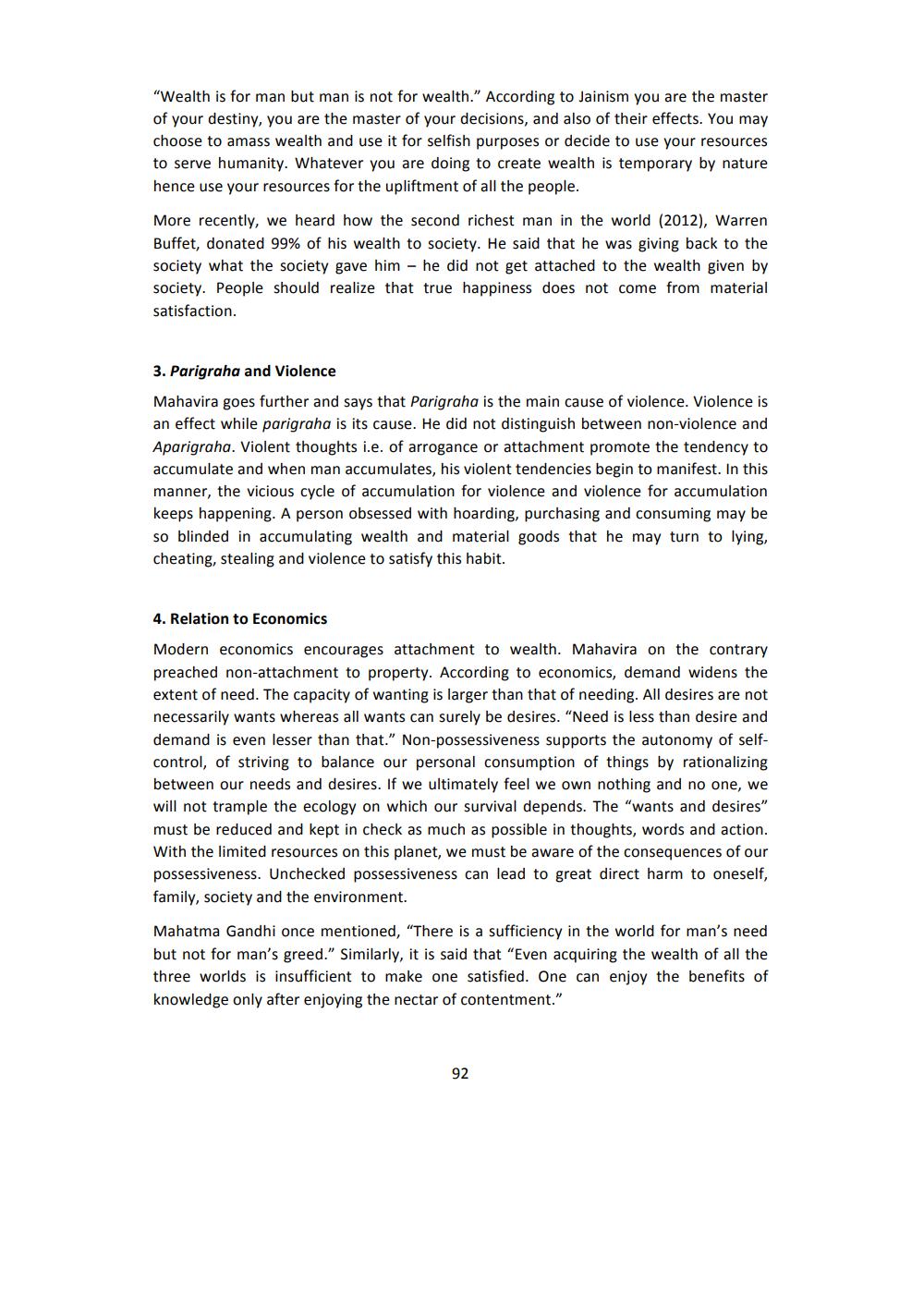________________
"Wealth is for man but man is not for wealth." According to Jainism you are the master of your destiny, you are the master of your decisions, and also of their effects. You may choose to amass wealth and use it for selfish purposes or decide to use your resources to serve humanity. Whatever you are doing to create wealth is temporary by nature hence use your resources for the upliftment of all the people.
More recently, we heard how the second richest man in the world (2012), Warren Buffet, donated 99% of his wealth to society. He said that he was giving back to the society what the society gave him he did not get attached to the wealth given by society. People should realize that true happiness does not come from material satisfaction.
3. Parigraha and Violence
Mahavira goes further and says that Parigraha is the main cause of violence. Violence is an effect while parigraha is its cause. He did not distinguish between non-violence and Aparigraha. Violent thoughts i.e. of arrogance or attachment promote the tendency to accumulate and when man accumulates, his violent tendencies begin to manifest. In this manner, the vicious cycle of accumulation for violence and violence for accumulation keeps happening. A person obsessed with hoarding, purchasing and consuming may be so blinded in accumulating wealth and material goods that he may turn to lying, cheating, stealing and violence to satisfy this habit.
4. Relation to Economics
Modern economics encourages attachment to wealth. Mahavira on the contrary preached non-attachment to property. According to economics, demand widens the extent of need. The capacity of wanting is larger than that of needing. All desires are not necessarily wants whereas all wants can surely be desires. "Need is less than desire and demand is even lesser than that." Non-possessiveness supports the autonomy of selfcontrol, of striving to balance our personal consumption of things by rationalizing between our needs and desires. If we ultimately feel we own nothing and no one, we will not trample the ecology on which our survival depends. The "wants and desires" must be reduced and kept in check as much as possible in thoughts, words and action. With the limited resources on this planet, we must be aware of the consequences of our possessiveness. Unchecked possessiveness can lead to great direct harm to oneself, family, society and the environment.
Mahatma Gandhi once mentioned, "There is a sufficiency in the world for man's need but not for man's greed." Similarly, it is said that "Even acquiring the wealth of all the three worlds is insufficient to make one satisfied. One can enjoy the benefits of knowledge only after enjoying the nectar of contentment."
92




